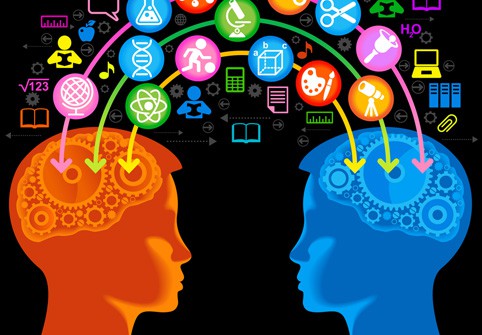TIPS TO IMPROVE LEARNING SKILLS
TIPS TO IMPROVE LEARNING SKILLS
If you ask teachers and parents, and even some older students, for tips on how best to learn?
You will get lots of advice. Some based on their personal experience – what worked for them – some on what they have seen work for students and some derived from research. Would you like to improve your learning skills?
Change your learning routine, locations, and material. Many students have a fixed time and place to study. However research has shown that varying your study location – at home in a different room, at school, in a library- can improve learning. In a similar way occasionally changing the time of day you study and the materials you use – laptop, pen, and paper, speaking into a voice recorder – also boost learning.
Get a good night’s sleep. If you are trying to learn facts like names, formulas, and dates, go to bed early and get a deep sleep in the early evening. Then get up early and review what you had been learning the day before. The sleep that best consolidates creative thinking and motor skills happen in the morning before awakening. So to learn these skills you may find it best to go to bed a little later than normal and sleep in a bit.

Space your study time. It’s better to do two one-hour study sessions than a single unbroken two-hour session. You will remember more if you do an hour today than another hour tomorrow, especially if you get the right sleep during the night (see tip 2).
Use self-testing. This is a strong, proven learning technique. You can test yourself by trying to remember what you were learning or explaining it aloud to yourself or to someone who is prepared to listen. You can get friends to quiz you. One of the benefits is that you can get immediate feedback whether you are right or wrong.
Take notes in class and review them. But don’t be passive. Don’t take notes verbatim and just look over them, or review highlighted text. This won’t be much help for your learning.
Be an active note taker. Try to make notes from the important points of the class then rewrite them without looking at the notes. This works your memory harder and immediately shows you what you don’t know.
Don’t worry about distractions while you’re studying. Learning scientists know that a short break, while you are trying to solve a problem you’re stuck on, is one of the best ways to succeed. When you take a break, your brain will continue to work on the problem subconsciously, without the imposition of preconceived ideas you may have had.
Create learning sessions or skills. When you focus on learning one thing at a time, it is the fastest way to acquire the learning but it can put a limit on the extent of the learning. Mixing the knowledge areas in a learning session – for example, working on mathematics, then history, then building a PowerPoint presentation about astronomy in a single learning session will sharpen your grasp on all of them better than if you used the session for one knowledge area alone.
Both high & low-level tasks are included.
High-level tasks require a high degree of speed and accuracy. Low-level tasks work on the ability to perceive similar sounds or images. You can include a gap in between learning.
Training and Exercise: This means the student is required repetitions daily. The exercises must grab and hold the student’s attention. Having good study skills is always helpful. If you want to be able to remember information, the best thing you can do is practice. If you practice one concept over and over “your attention decreases because you know what’s coming up next,” Mix up your practice. Regular practice makes you confident and your memory power also.
Use Pictures and Diagrams: Pay attention to diagrams and graphs in your class materials. “Those pictures can really boost your memory of this material. Find out your own formulas, when you study essays or paragraphs.
Underline the Key Points: This is another method of learning tips. These are the best-known study tips. The act of underlining something means you are engaging with certain key aspects of the text. Highlight one key sentence per paragraph and a few important phrases here and there. Highlighting the most significant parts of what you’re reading helps you to brief up the whole chapter so that the next time when you are going to revise the chapter or a topic, you don’t need to scroll down the whole page but you will recall every concept just by having a look of the underlined sentences.
Prepare Your Own Study and Study Notes.
Taking Notes is one of the most widespread study skills. Preparing the notes helps to summarise the articles in your own words, including all the key info, so that you can easily remember the ideas. Keywords are more easily remembered than long sentences. Try to keep your notes short, to the point, well-organized, and easily readable.
Recall Your Learning:
Never forget to recall whatever you have learned. The time when you go for a break after studying for the time you found was best, do something else not connected with your work. But don’t stop thinking about what you were reading. This is the time when you can realize that what topics are in your mind and what others have swept off the mind.

Handwritten Method:
The old handwritten method still has its place. This method is good to keep your memory.
Timely appreciation: This is a good motivation to learn. Through this activity, students can develop their interest to learn and confidence.
Take Regular Study Breaks:
Your brain is like a muscle that can also get tired if you overwork it. Once it gets tired you really can’t concentrate on your work. So it’s important to realize the length of your concentration span and help yourself to give some rest from the work you’ve put in. Taking regular short breaks not only helps improve your focus but can also boost your productivity too. The relaxing period can be in the form of a ten-minute walk, having a snack, juice, having a chat with a friend, or is reading a simple story, listening to music, etc, This gives the brain the best chance to restore the whole of your learnings. When students eat better, they can learn better.
Vasantha. KP
